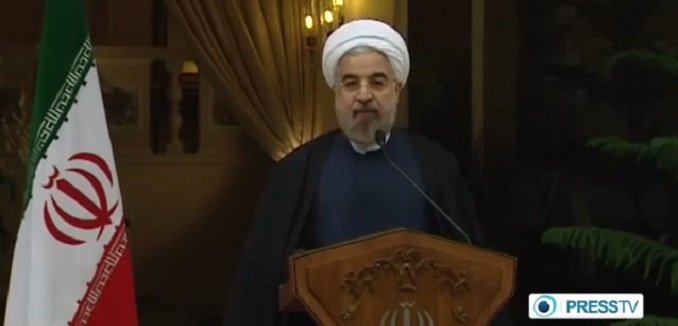Israel’s left-leaning Haaretz revealed last night that U.S. officials have privately conceded to Israeli counterparts that the Obama administration “greatly underestimated the economic benefits Tehran would reap” from the recently signed Geneva accord between the P5+1 global powers and Iran, and that the Islamic republic stands to receive a windfall totaling roughly $20 billion from international concessions, rather than the $6 to $7 billion that administration officials had repeatedly quoted to lawmakers, allies, and journalists.
According to the security sources: “Economics is a matter of expectations. The Iranian stock exchange is already rising significantly and many countries are standing in line to renew economic ties with Iran based on what was already agreed in Geneva.” The sources mentioned China’s desire to renew contracts worth some $9 billion to develop the Iranian oil industry and the interest some German companies are showing for deals with Tehran. “In any case, it’s about 20 or 25 billion dollars. Even the Americans understand this,” the sources said.
Mark Dubowitz, the executive director of Foundation for Defense of Democracies (FDD), had pegged Geneva concessions as totaling roughly $20 billion even before the deal was announced. Dubowitz and Jonathan Schanzer, the latter being FDD’s vice president for research, more recently outlined how the White House had failed to take into account the “the total impact” that suspending automobile sanctions would have on the Iranian economy, and that U.S. officials had specifically neglected the value of “cars produced for the domestic market, wages paid, and other economic activity.” Israeli assessments had similarly far exceeded the administration’s
Steinitz said Israel believed the sanctions put in place by the United States and European Union last year cost Iran’s economy around $100 billion per year, or nearly a quarter of its output. “The sanctions relief directly will reduce between 15 to 20 billion dollars out of this amount,” Steinitz said on Wednesday, suggesting that the weakening of the sanctions regime could eventually result in a $40 billion boost to the Iranian economy. “This is very significant. It’s not all the sanctions. It’s not the core sanctions about oil exports and the banking system, but it’s very significant relief for the Iranians,” he said at an English-language event hosted by the Jerusalem Press Club.
White House figures and their supporters had belittled such concerns, declaring that the assessments of U.S. analysts and Israeli diplomats were based on incomplete knowledge, and at one point going so far as to tell senators to ignore Israeli estimations. It is not yet clear to what degree the dual dynamic – admitting that sanctions relief will come in at over twice their estimates, after having blasted critics who predicted as much for grossly exaggerating – will erode the credibility of administration assurances regarding Iran.
[Photo: News / YouTube]




